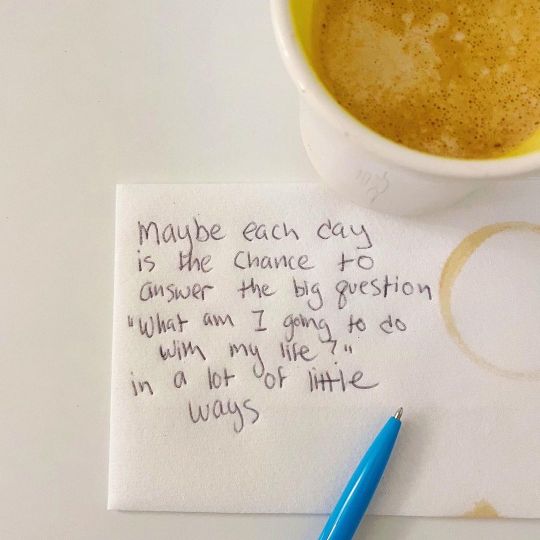Just stay here with me;We can relax togetherWatching the snow fall.
Last active 60 minutes ago
Don't wanna be here? Send us removal request.
Text

If you want to say thank you, don’t say sorry
13K notes
·
View notes
Text
Emotional Regulation- what's it all about?

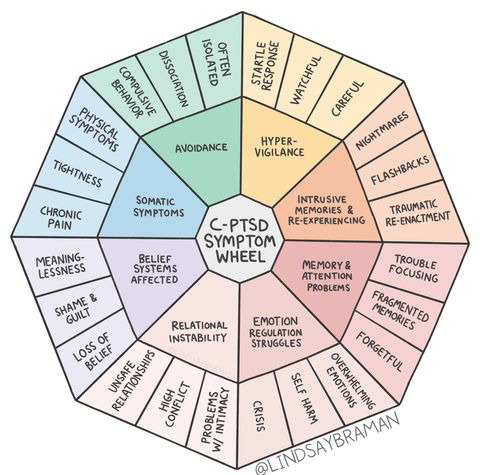
Emotional regulation is the work of releasing pent up stress from your nervous system.
Your body has an entire system of automatic stress responses. Some of which can be born out of hard wired prolonged exposure to trauma in our childhoods.
With no proper regulation from our abusive & neglectful parents, many of us are still stuck in these same fear responses from our childhoods. Which means a lot of that fear, sadness, guilt, and shame, reappears in the form of how we cope now as an adult.
By learning how to recognize which state of survival you're in- and you can be in all states at different times and triggers- you can then work on giving your body a more directed route to releasing the pent up exhaustion, fear, tension, and panic.
Which in turn gives us more room to breathe easier when we are feeling stress, panicked, and triggered.
There are many techniques to help with emotional regulation. Somatics is the practice of moving your body to release the energy.
This is why everyone will scream yoga and exercise at you. But its not just limited to those two types of movements.
If you are bed bound, somatics can be as simple as raising your arms, lifting your legs, and rolling your neck.
The key idea is to recognize when you're overwhelmed, panicked, and triggered in your day to day life. Work real hard on bringing these moments into your awareness. What are your thoughts like? What are your reactions?
From there we work to integrate a basic somatic framework over time. This can look like working hard to incorporate some form of comfort, movement, and acceptance for the physical discomforts of these moments.
A basic framework can include:
Butterfly hugs (put ur hand over ur heart)
Self hugs
Hold your shoulders
Rub your shoulders, arms, tummy, and legs
Lift ur shoulders, shake ur arms, clench ur fists
Wiggle in ur seat
Raise ur legs, stomp your feet gently in place, roll ur ankles
Deep breathing
Groaning, sighing, screaming, making noise
Humming or singing
Outwardly showing emotions on your face
Cold/warm compress or towel
Weighted blankets or comfort items
Sensory stems
These are just a few examples. You can literally do whatever types of movements that feel natural for you.
The secondary idea of emotional regulation is self expression.
That's why it's okay to groan and scream and be loud and expressive in these moments, if you need to. Remember that most often panic attacks, stress, anxiety, and triggers are deeply emotional responses to very personal scenarios and traumas that we have endured in our past. Some of these fears stem from some really scary places. It makes a lot of sense that you might need to scream, cower in fear, or use facial expressions in these moments.
Oftentimes in abusive environments we are restrained from doing so by our abusers. When in reality, these are the standard reactions for what we went through. These are the types of reactions that our bodies are repressing.
It can feel overwhelming to think about acting in such ways, especially if you're not able to practice these in peace, solitude, and safety. But please know that how you cope is an extremely personal and extremely precious part of who you are. Do whatever you need to do for your health and safety and stability and peace of mind. That should be the main goal.
One last thing about emotional regulation to remember, is that the goal is to not be "happy" or at a "peaceful baseline" all the time.
The goal is to allow the anger, allow the sadness and grief and all other emotional signals in-- and then express them in healthier ways than what you're doing now.
Because at the end of the day, groaning and pitching an intended hissy fit in the privacy and safety of your own home, is a much better and healthier way to cope than hurting yourself.
Allow your inner teen the proper emotional outlets your parents stole from you.
This is the work of emotional regulation.
[self regulation chart source- primaltrust-official]
"The Autonomic Nervous System (ANS) communicates to us through our feelings and our sensations in the body. By learning how to recognize our ANS states, we can become better equipped with knowing what we can do to help ourselves in times of discomfort or distress.
Many people are aware of the fight/flight state, but there is often confusion with freeze and shut down states, which are actually different.
Dorsal vagal shutdown is a state of parasympathetic collapse, and because of this, a little movement and stimulation of the vagus nerve (since this nerve governs the parasympathetic response) is helpful. On the other hand, a freeze state is a mixture of sympathetic and parasympathetic (the dorsal vagal shutdown) immobilization, which to our nervous system is like having a foot on the gas and a foot on the brakes at the same time. In this state, the nervous system needs to be shown safety, so it can come out of paralysis, relax and then move energy as needed.
A telltale physical sign of being in freeze is having very tight, sore muscles, or noticing you are 'bracing' in your body, as if preparing for impact. Panic attacks can also occur in the state, which is a step beyond the anxiety experienced and fight/flight.
The aim of all the suggested exercises in this post is to help the body come into a healthy (not dorsal vagal shutdown!) parasympathetic state- ventral vagal- but to get there, you might journey from freeze to fight/flight for example, or dorsal vagal to fight/flight. This is very normal and can be explained wonderfully by the Polyvagal Ladder (see the teachings of Deb Dana for more). The goal is to not be in ventral vagal all the time. Our nervous system is highly intelligent and will flow between states as needed, thus the aim is to allow this flow, versus getting stuck in any shut down, freeze, or fight/flight state for too long."
[C-PTSD symptom wheel source- Lindsay Braman]
"This new C-PTSD symptom wheel resource is a tool for education and for advocacy.
The World Health Organization's diagnostic criteria for Complex Post-Traumatic Stress Disorder are split into 8 distinct categories. These categories were mapped by Dr. Wei-May Su and Dr. Louise Stone in an Australian medical journal in 2020. Simplifying and then building off their work* to highlight specific ways these symptom categories show up in a survivor's life, I've created this radial chart showing how the constellation of symptoms experienced by survivors of complex trauma can be organized under the heading of C-PTSD.
I often avoid creating art that can be used for diagnosis or self-diagnosis, but the fact is, resources and awareness are desperately needed on the topic of C-PTSD. See, although it has been recognized by the World Health organization since 2020, the USA's diagnostic manual, the DSM-5, doesn't include C-PTSD. Because it's omitted from the DSM, many therapists aren't trained to recognize it or treat it. Insurance won't cover treatment, and too often people get misdiagnosed and given ineffective treatments.
Historically, mental health providers haven't done a great job of understanding and categorizing experiences of complex trauma survivors, but through education and advocacy, we can change that."
🌸🌸🌸🌸🌸🌸
Hope this helps
🌸🌸🌸🌸🌸🌸
686 notes
·
View notes
Text
Looking out the window and seeing a little bird can honestly be so life changing
46K notes
·
View notes
Text
I really can’t stress enough how important it is to talk to your friends, family members, and partners regularly about their right to set boundaries, even ones that inconvenience you.
We absolutely live in a hierarchial abuse culture where people can and do impose their will on each other in a million tiny ways. A lot of people just expect it - they’ll make choices according to the assumption that you, too, are invested in controlling them to whatever degree - because unless you consciously make a point not to be, it’s possible that you are.
In a healthy relationship people ask for consent often - “Do you want to do this? Are you comfortable with this? Is there anything you think we should change about this plan?” And then, they clarify that negative answers are totally normal and okay.
Checking in can sound like, “Hey, you know I love doing X but if you ever don’t want to you know that’s okay, right?” It’s paying attention to nonverbal cues that someone is uncomfortable and giving them an out - “You don’t seem excited about this party, I want you to know it totally won’t be a big deal if you’d rather not.”
In a healthy relationship there’s a huge difference between “no” and “you shouldn’t have asked”. “No” is normal and expected and it’s assumed that sometimes it will be the response. There’s an intentional effort not to punish each other for not always giving each other what you want.
Normalize “no” in all your relationships. Seek it out! Give people extra opportunities to say no! And accept it. Recognise that it’s a good sign when your loved ones feel safe enough to not agree to things they don’t want out of fear of your reaction.
Just - check in. I don’t care what kind of relationship it is, don’t assume people know it’s safe to say no to you unless you remind them and show them regularly. Making space for healthy boundaries is one of the most important things to communicate with the people that you care about.
8K notes
·
View notes
Text
It's been awhile since I posted about it, so here we go!
I currently run an 18+ recovery focused server. This server is not just for BPD recovery, but for all sorts of recovery. Here's an excerpt from our welcome channel!
"Recovery can be so much like free-falling and we hope that this server can help offer you a "parachute" to land a bit more softly. Right off the bat, please know this is not a substitution for therapy and no one in here (myself included) claims to be a professional. This is a server to offer peer support, get advice and overall cheer each other on. While recovery is a wonderful thing, it is not easy and it can feel so isolating and difficult sometimes. This server is meant to be a place to talk about struggles together and help offer encouragement where needed to help people keep moving forward."
If you'd like to join, please send me a message! The link is not publicly posted anywhere so we can keep the space as safe as possible.
(I also run a trauma server, and you can reach out for that one, too but just let me know which server you're looking for. Both is allowed and a lot of people are in both.)
28 notes
·
View notes
Text
Ways to Work on Your Negative Thinking
Examine the Evidence
A lot of the time, our negative thoughts may be made really strong by our emotions. For example, we might feel like we can't do anything right, that all we do is fail. Now it can be hard to believe, but while emotions can be strong, they aren't facts. Just because we feel like a failure doesn't mean we are. One way to work on this is by examining the evidence of our negative thought.
To combat this, we might make a list of things that we've done right or succeeded at. This is an example of examining the evidence. This list could be anything from big accomplishments to little victories or anything you're proud of. Here's an example of mine:
Managed to shower today even though it was hard.
Got my BA
Made it through every bad day I've ever had (that's a 100% success rate!)
Listened to a friend vent and offered support
I tried different things even though it was scary.
I've said "I'm sorry" and meant it. I've admitted I was wrong and swallowed my pride to admit that.
If you're up to sharing, what are some of your victories, accomplishments or things you're proud of?
Check below the read more for a more detailed way to examine the evidence.
Examining the evidence is basically like "Putting Your Thoughts on Trial."
Let's start with the situation that started these negative thoughts. (What happened, who was involved, and where and how did it happen?)
And let's put a mood to that situation.
Example: I feel embarrassed.
What thoughts arise in response to this situation? List as many as you think of.
Example: I feel like a failure! I can't do anything right. I'm never going to succeed at anything.
Okay. Now let's examine the evidence that supports this thought. (If there are more than one, pick the one that feels the strongest.)This needs to be evidence that's considered credible, so things like "I ruin everything!" are statements, and not actual evidence.
Example: I failed my test.
Now we're going to look at evidence that does not support the thought. We're looking for holes in your general thought. For this one, we'll stick with our previous example. "I feel like a failure. I can't do anything right! I'm never going to succeed at anything."
Example: I have passed tests before. I helped a friend who was upset today.
Now let's try and find a balanced thought.
Example: I mess up sometimes, but that's okay because there are a lot of times I don't mess up.
Sometimes, these things may bring us to a situation that does need solving. Like perhaps, you can't pass the class by failing this test, and in a case like this, it's important to stop and remember that that does not indicate that you are failure. Try not to work on solving the problem until your thoughts are not spiraling.
A huge part of this is trying to put facts to a situation and not seeing our emotions as facts. Feeling like a failure does not mean you are a failure. And that's really important to try and recognize.
515 notes
·
View notes
Text
Please try and reach out for help and reassurance in a way that doesn’t involve guilt tripping your loved ones.
I understand what it feels like to feel abandoned or unloved or any number of things but telling a loved one “I guess you don’t love me” or “you’re just going to leave me like everyone else” isn’t the way to handle it.
As someone who has been on both sides of it, that is hurtful. While you may tell yourself it’s not personal, it doesn’t change that it hurts to be accused of something when you love someone so much. It’s also exhausting and just overall something that can damage your relationships. In some cases, it can create self fulfilling prophecies. (Things like accusing a loved one of planning to abandon you like everyone else take a toll.)
This could be much better framed as “I’m feeling really insecure today. Could you please give me some reassurance?”
Remember that your feelings aren’t facts. Don’t accuse your loved ones of things like this.
195 notes
·
View notes
Text
Since a friend has just been given a suspected ME/CFS diagnosis, I'm going to try to list the most useful things I've learned about coping with the disease. If it helps other people too, then yay! I assume long COVID sufferers will also be able to apply a lot of it.
Feel free to save/reblog/tattoo on your arms/whatever. :)
Keep baths/showers closer to lukewarm than hot. It sucks, but keeping your body temperature from spiking helps lessen the inevitable post-bathing crash.
Shower chairs. Kitchen chairs. Garden chairs. Chairs, chairs, chairs.
Electric toothbrushes = less arm movement when brushing your teeth.
Don't lift your arms over your head unless absolutely necessary. Even when shampooing your hair, it's better to lower your head to your hands (keeping your elbows down) than the other way around. If you want to stretch your arms over your head as a gentle exercise to help your mobility, do it when you're lying down flat.
Baby wipes and dry shampoo are good for hygiene when showers are a nope.
Food packages you can eat in bed are important to have around for crash days. Croissants, pain au chocolat, crackers, corn/ricecakes, etc.
Sugar and music will get you through the exhausting stuff that you can't cancel or delegate (please disregard this advice if you're diabetic/have hearing issues or noise sensitivity).
YMMV, but sometimes you will have more mental fatigue than physical, but you might mistake it for physical if you're not thinking about it. Those days are good for getting brainless tasks within your energy envelope done (like the dishes).
Leave a task half-finished and come back to it after resting, if you're finding yourself overreaching. (This is the advice I absolutely can not make myself take, because 'I've started, so I might as well finish' is seductive. But it IS good advice.)
My personal stop sign for 'lie down before you fall down' is tingling pinkie fingers, for some reason. Figure out what yours is, and listen to it.
Resting feels like a waste of time, especially if it's done all the damn time... but it's not a waste, it's necessary. Forgiving yourself for having to do it will make things more mentally tolerable.
There will always be people you interact with who insinuate that if you just tried harder...(insert toxic positivity here). They will seem like they have a point, because your inner ableist guilt-tripper will agree with them, but they don't know what it's like to have your symptoms. Screw what they think.
I could probably add more, but my brain is tired, and there are a lot of words for brain fog sufferers already. But I hope this can help a few people. 🙂
315 notes
·
View notes
Text
a good conversation tip is that when you initiate a conversation or a topic within a conversation, you are implicitly Casting the other person in a role–they’ll have had or observed similar interactions in the past and understand this even if not consciously. like the simplest example of this is that if you say ‘knock knock’, the other person knows they’re meant to say ‘who’s there?’. this is why intense self-deprecation is a shitty social move, because you are casting your conversational partner in one of two roles: Guy Who Argues With You, which is inherently a tiring role to be put in, especially on the regular, or worse, Guy Who Agrees That You Suck Because They’ve Always Secretly Hated You, which nobody wants to be. verbally self-flagellating isn’t bad social form because it’s wrong to express symptoms of mental illness, it’s bad because unless you are careful you end up implicitly offering the people youre talking to a whip they dont want
#gentle reminder#daily reminder#recovery#this is really true and something I need to work on lmao.#at least I’m becoming more self aware of it I guess…#it’s definitely going to be a rough habit to kick but at the end of the day it’s one of those efforts I have to make#both for my sake and for the people around me…🖤
45K notes
·
View notes
Text
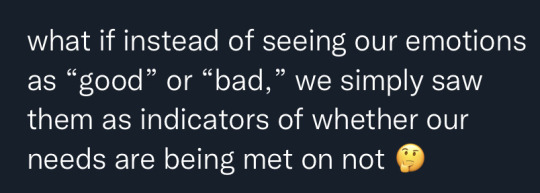
This is such a genius approach. Please practice incorporating this habit.
883 notes
·
View notes
Photo
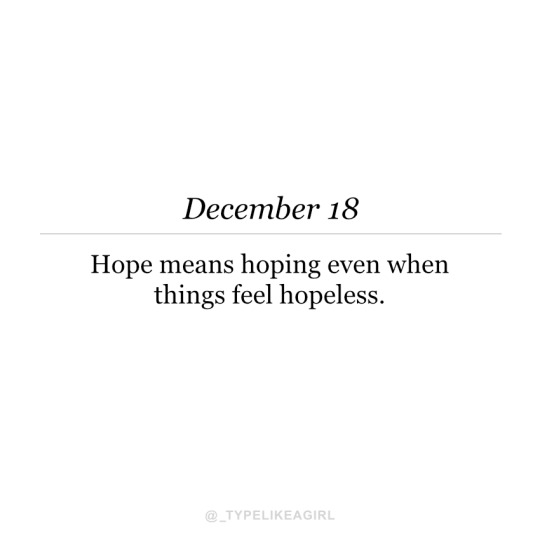
233 notes
·
View notes
Text


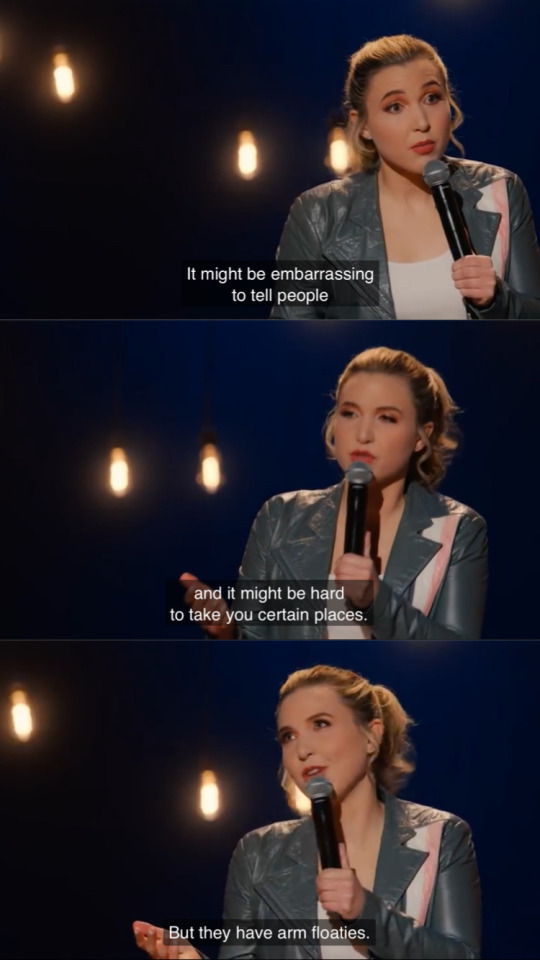


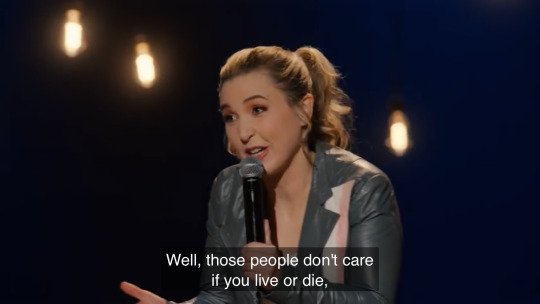
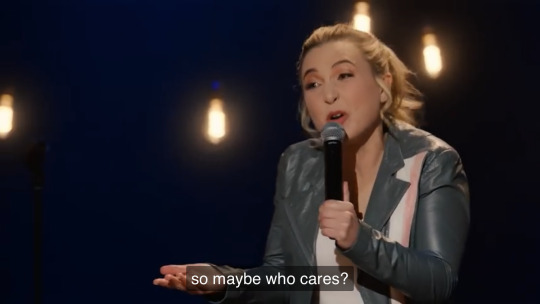


“And I don’t think anybody should feel bad if they get diagnosed with a mental illness, ’cause it’s just information about you that helps you to know how to take better care of yourself.
“Being bipolar, there’s nothing wrong with it. Being bipolar is like not knowing how to swim. It might be embarrassing to tell people, and it might be hard to take you certain places. But they have arm floaties. And if you just take your arm floaties, you can go wherever the hell you want.
“And I know some of you are like, ‘But Taylor, what if people judge me for taking arm floaties?’ Well, those people don’t care if you live or die, so maybe who cares? Maybe fuck those people a little. I don’t know.”
Taylor Tomlinson, Look At You (2022)
106K notes
·
View notes
Text
you’re not a failure just because you’re not where you thought you’d be by now
#quotes#self neutrality#self love#self care#something I have to try to remind myself every damn day…#I’m a work in progress and that’s okay.
93K notes
·
View notes
Text
Learn to say “can you love me a bit harder today? It’s a rough day” and then explain how you want to be loved harder.
Learn to say “I could use some support. Are you able to provide some? This is how you can support me -“
Learn to say “I feel lonely. Are you able to keep me company?”
Learn to say “I’m feeling overwhelmed. Can I talk to you about it?”
Do this instead of dropping hints or expecting someone to be able to read you. What may be obvious to you isn’t necessarily obvious to someone else. You’re often hurting your own feelings by not communicating your needs and just hoping people meet them anyways.
I know this is easier said than done. We often drop hints because we feel ashamed or bad about asking for help. But the truth is, for most of our loved ones, us hinting at things is exhausting. It can also set them up for failure because they don’t know your expectations. Sometimes they miss hints but sometimes they ignore them because it’s more draining when they aren’t asked directly. It’s very likely your loved one would appreciate you being direct.
People often want to support and help you, but a lot of them like to be told how they can do that.
33K notes
·
View notes
Text
i think something to remember is that you don't need to have a disorder to feel benefit from doing skills intended for that disorder. if using lists benefits you and you aren't diagnosed with adhd, so what? if dbt benefits you and you aren't diagnosed with bpd, so what? just because you don't have the disorder/are not diagnosed with it does not mean you are not allowed to use skills intended for that disorder. symptoms overlap and everyone will at some point show traits of disorders they don't have.
so use that skill, make those lists, write that down. if it benefits you it benefits you and no diagnosis or lack thereof will change that.
1K notes
·
View notes
Text
“You can’t help what you feel, but you can help how you behave”
— Margaret Atwood
383 notes
·
View notes
